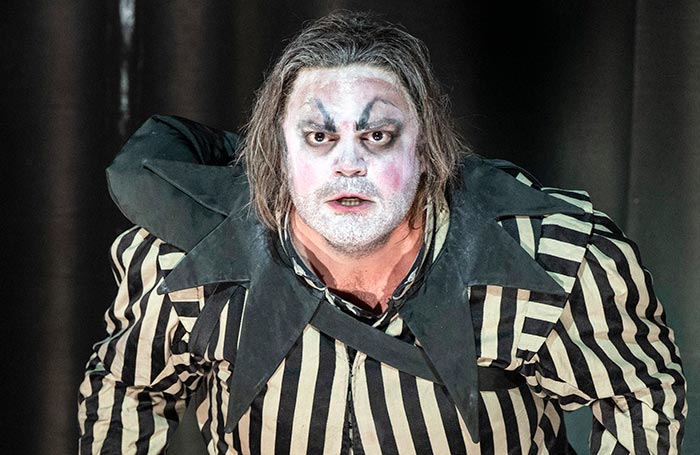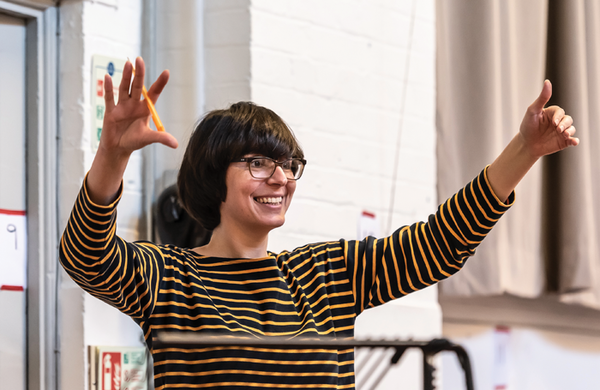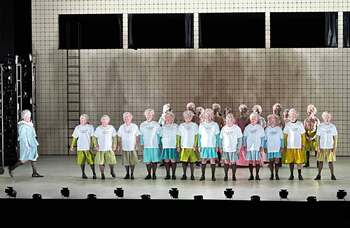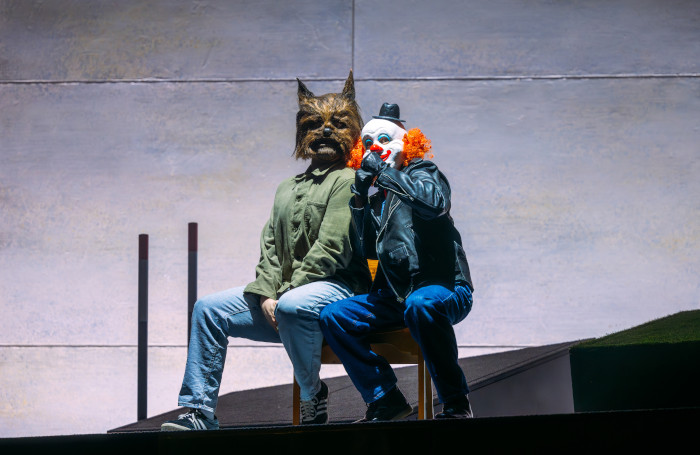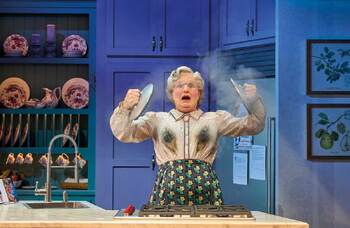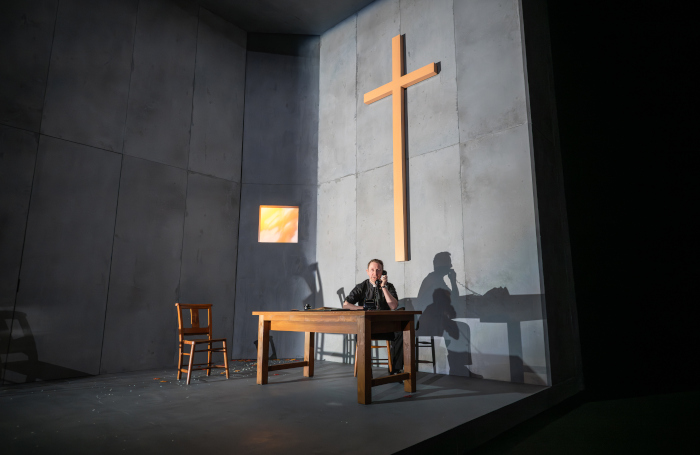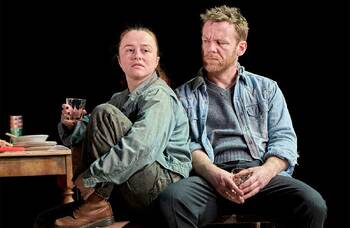Rigoletto review
Welsh National Opera delivers Verdi’s revenge tragedy to a world-class standard
Given the frequent opportunities to see Verdi’s revenge tragedy offered by one or other of the UK’s main companies, it becomes all too easy to take this familiar classic for granted. Maybe only when one encounters an exceptional staging, with musical standards to match, does it really hit home with its full power. That’s the case with Welsh National Opera’s new production by Adele Thomas, who makes her directorial debut with the company that she will co-lead from January next year.
Thomas’ passion for opera, and this work in particular, is evident in her programme note, in which she cites various influences represented in Annemarie Woods’ designs: Jacobean theatre; the works of William Hogarth and the contemporary satirist Cold War Steve; and specifically, 18th-century artist Pietro Longhi’s painting Exhibition of a Rhinoceros at Venice, which shows rich Venetians gawping at the captured animal. “This rhinoceros,” she suggests, “is Rigoletto.” In the endless cruel games that amuse the court of the Duke of Mantua, with jester Rigoletto both aggressor and victim, Thomas homes in on the crucial element of humiliation.
Continues...
From the opening orgy scene, Woods’ outré costumes and heavy make-up for the male chorus combine with a shocking level of violence and sexual assault to colour in a background focusing on the depravity of the powerful. At times, the result is over-busy, and the two reappearances of the leering courtiers later in the production are unhelpfully distracting. Yet Thomas’ bold vision is thought through, right up to the ultimate shock of the ending: rarely has an audience seemed so intent on the action as the opera heads towards its devastating finale.
The cast delivers both for Thomas and for Verdi. In a tour de force of operatic acting, Rigoletto is realised in the widely varied, tireless tone of Spanish-American baritone Daniel Luis de Vicente. Italian Raffaele Abete is ideally cast as the Duke – a worthless narcissist – his free and easy tenor belying the casual cruelty beneath his charming surface. British soprano Soraya Mafi, meanwhile, personifies Gilda to perfection, her aria Caro Nome not just flawlessly voiced, but exemplifying Gilda’s perilous innocence. She stops the show.
The crucial secondary roles of hired assassin Sparafucile, his partner-in-crime sister Maddalena, and wrathful, rebellious courtier Monterone – whose daughter is another of the Duke’s victims – are delivered with authority: Nathanaël Tavernier, Alyona Abramova and Paul Carey Jones do the respective honours.
The chorus and orchestra are consistently engaged, conductor Pietro Rizzo summoning up a sleek, dramatically motivated account of the score. And the fact that the company can deliver this difficult piece to a world-class standard during a time of worrying financial insecurity is doubly impressive.
More Reviews
Recommended for you
More Reviews
Recommended for you
Most Read
Across The Stage this weekYour subscription helps ensure our journalism can continue
Invest in The Stage today with a subscription starting at just £7.99
